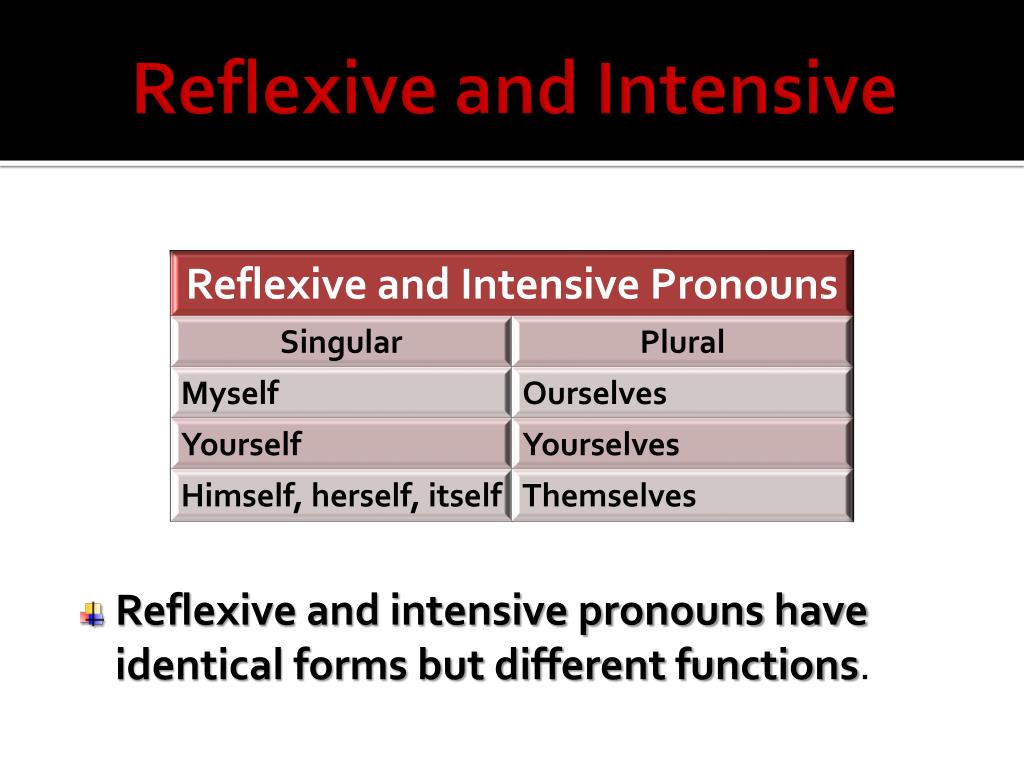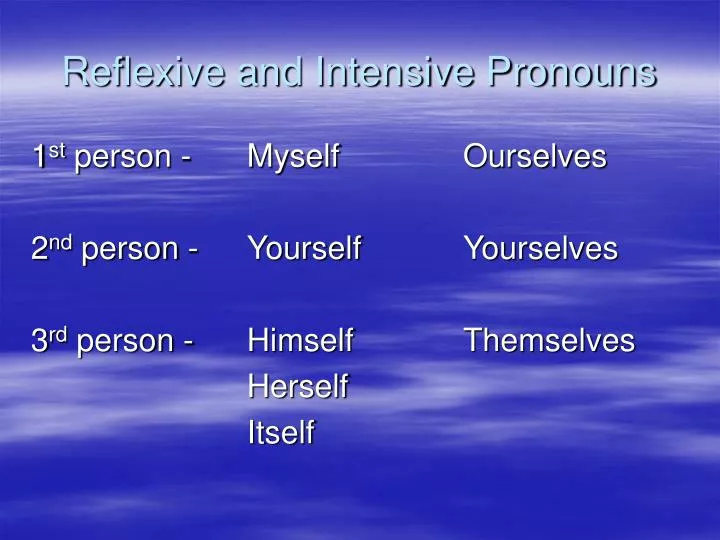

They include “myself,” “yourself,” “himself,” “herself,” “itself,” “ourselves,” “yourselves,” and “themselves.” Reflexive pronouns “reflect” back to the subject. What kind of pronoun reflects the action back to the subject? Color, temperature, and solubility are examples of intensive properties. An intensive property is a property of matter that depends only on the type of matter in a sample and not on the amount. Mass and volume are examples of extensive properties. In general linguistics, an intensive pronoun (or self-intensifier) is a form that adds emphasis to a statement for example, “I did it myself.” While English intensive pronouns (e.g., myself, yourself, himself, herself, ourselves, yourselves, themselves) use the same form as reflexive pronouns, an intensive pronoun is … What is an example of intensive?

We went to listen to President Obama himself speak.What is intensive pronouns give 10 examples? These pronouns always end in -self or -selves, such as himself or themselves, and they are essential to understanding the meaning of the sentence.

What type of pronoun reflects on the subject?Ī reflexive pronoun is a pronoun that “reflects” directly back onto the subject of the sentence. Sometimes we use reflexive pronouns like “myself” and “ourselves” for emphasis in a sentence, like, “If you won’t help me, then I’ll do it myself!” KA’s Grammar Fellow, David, explains this usage.


 0 kommentar(er)
0 kommentar(er)
